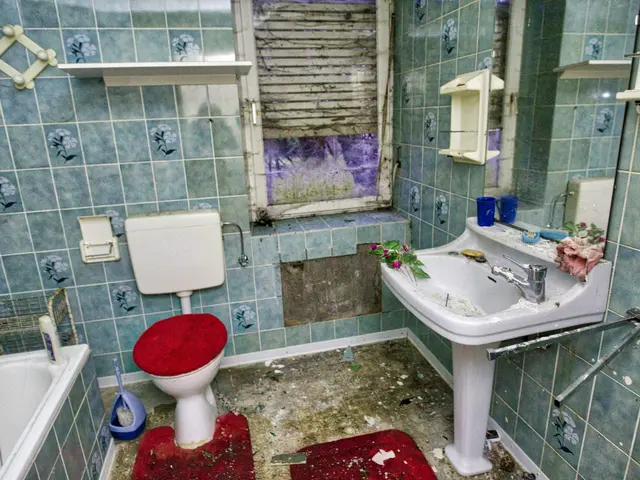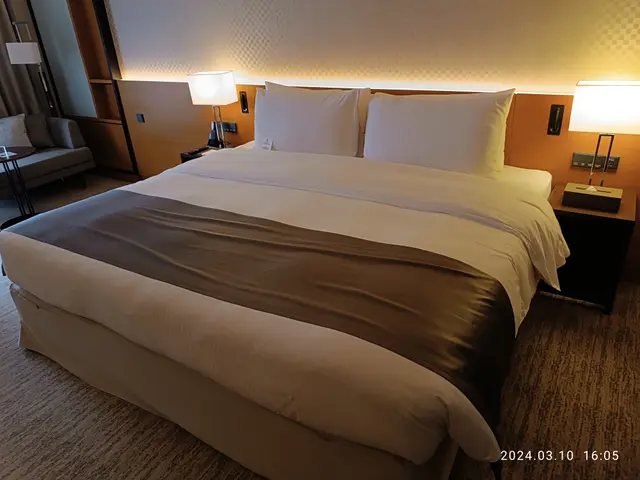Streamlined Administrative Processes for Enhanced Urban Living Experience - Streamlined administration for enhanced urban living in city cores
In a bid to revitalize city centers, Rhineland-Palatinate has lessened bureaucratic barriers for outdoor dining, allowing restaurants and eateries to expand their seating areas more easily. This strategy, supported by the state capital Mainz, seeks to bolster local commerce and infuse life into city centers without excessive administrative hurdles.
At a recent presentation, Mainz's Economic and Public Order Director, Manuela Matz (CDU), highlighted the significance of outdoor dining areas for the appeal and vitality of city centers. New regulations will now require a building permit only for outdoor dining areas larger than 50 square meters, or if structures such as podiums or canopies are built. Previously, this threshold was 20 square meters.
Moreover, building permits for areas exceeding 50 square meters will now be valid for three years, with a straightforward extension process available. the industry association Dehoga in Rhineland-Palatinate has recognized the importance of these relaxing regulations, stating that there is a growing preference for outdoor dining spaces among customers post-pandemic.
Other cities, like Kaiserslautern and Trier, have already taken steps to encourage outdoor dining, regardless of the COVID-19 situation. Kaiserslautern has relaxed nighttime hours, enabling outdoor dining to remain open until 11 pm weekdays and midnight on weekends and holidays. Trier has extended operating hours for outdoor dining, with terraces now capable of staying open until 11 pm weekdays and 1 am weekends, with reduced noise levels in the last hour.
Trier has revised its special use regulation for 2024, incorporating suggestions such as the ability for shops to place seating in front of their doors and the option for standing tables and winter heating on outdoor terraces, subject to certain conditions. In Trier, a special use permit is necessary, while no building permit is required regardless of size, except for any actual construction measures like attaching awnings.
Similarly, Ludwigshafen welcomes outdoor dining and does not require building permits in the gastronomy sector, only charging special use fees. During the 2024 UEFA European Football Championship, the city administration temporarily shortened the closing time, permitting outdoor seating until 11:00 PM under specific conditions.
Koblenz, however, does not plan to make any changes to its outdoor dining regulations. Regulations require that outdoor seating areas do not obstruct traffic and leave enough space for emergency responders and firefighters. A special use permit is necessary to place chairs and tables on public property, with monthly fees ranging from 2.65 to 6.10 euros, depending on the location within the city.
Overall, Rhineland-Palatinate's efforts to reduce bureaucratic obstacles for outdoor dining help foster a more inviting environment for dining and drinking outdoors, contributing to the economy and the charm of city centers. Municipal regulations may vary slightly among cities, so it is advisable to consult city administrations or official local government websites for precise regulations.
The Community policy of Rhineland-Palatinate has been adjusted to encourage outdoor dining, as a means to revitalize city centers. This adjustment includes relaxing regulations for building permits on larger outdoor dining areas, and the industry association Dehoga acknowledges the importance of these changes, attributing a growing preference for outdoor dining spaces to customers post-pandemic. Meanwhile, the choice of lifestyle, food-and-drink options, and home-and-garden settings can be enhanced in city centers through the creation of inviting and vibrant outdoor dining spaces.





